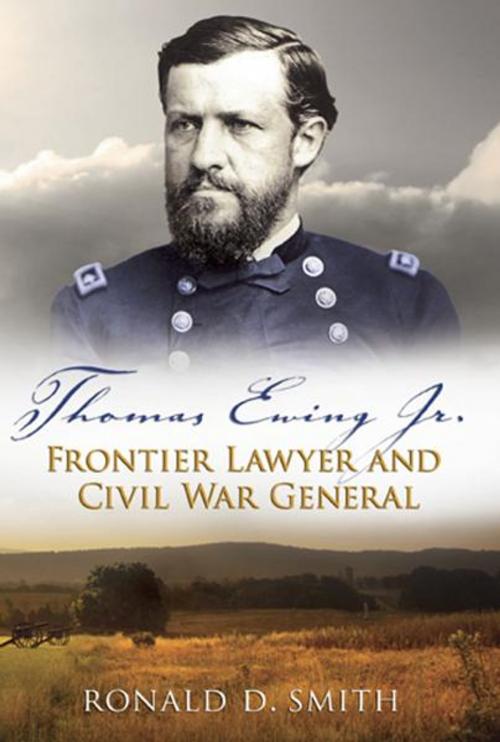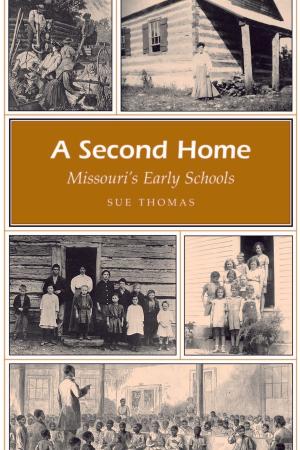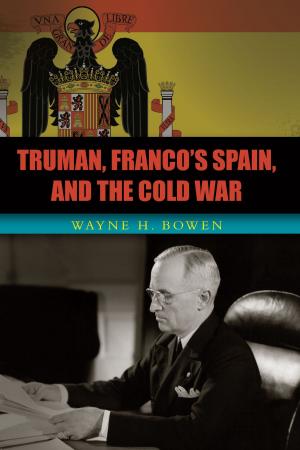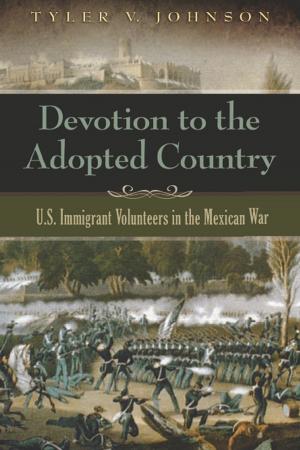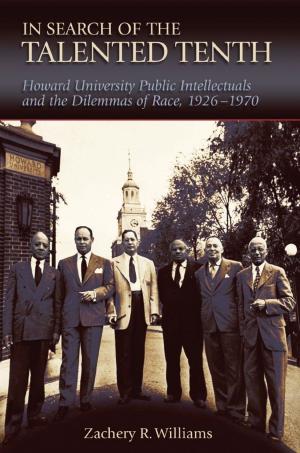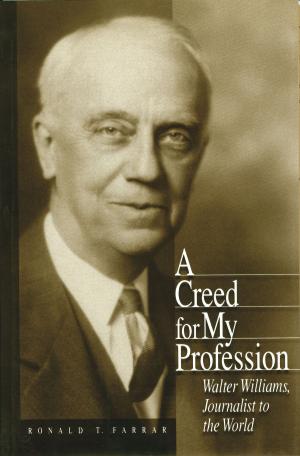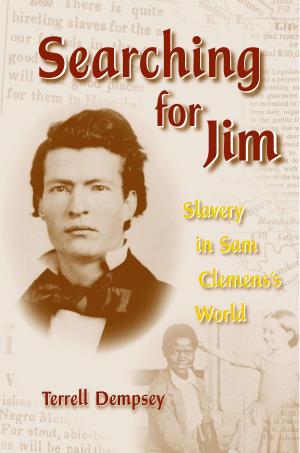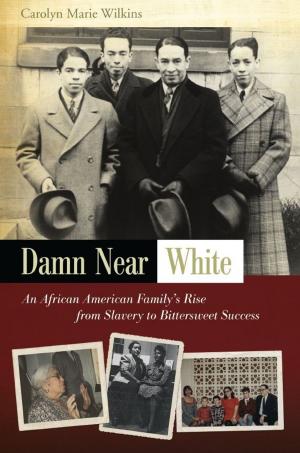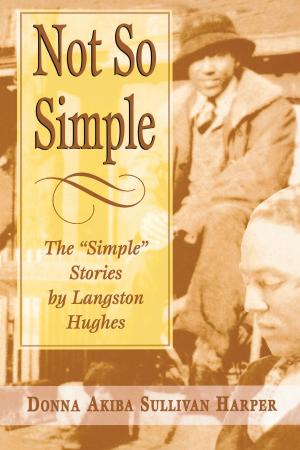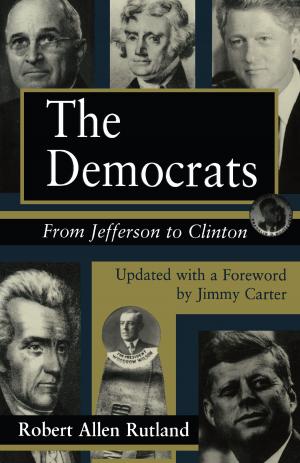Thomas Ewing Jr.
Frontier Lawyer and Civil War General
Nonfiction, History, Americas, United States, Civil War Period (1850-1877), 19th Century| Author: | Ronald D. Smith | ISBN: | 9780826266668 |
| Publisher: | University of Missouri Press | Publication: | November 3, 2008 |
| Imprint: | University of Missouri | Language: | English |
| Author: | Ronald D. Smith |
| ISBN: | 9780826266668 |
| Publisher: | University of Missouri Press |
| Publication: | November 3, 2008 |
| Imprint: | University of Missouri |
| Language: | English |
An Ohio family with roots in the South, the Ewings influenced the course of the Midwest for more than fifty years. Patriarch Thomas Ewing, a former Whig senator and cabinet member who made his fortune as a real estate lawyer, raised four major players in the nation’s history—including William Tecumseh “Cump” Sherman, taken into the family as a nine-year-old, who went on to marry his foster sister Ellen. Ronald D. Smith now tells of this extraordinary clan that played a role on the national stage through the illustrious career of one of its sons.
In Thomas Ewing Jr.: Frontier Lawyer and Civil War General, Smith introduces us to the Ewing family, little known except among scholars of Sherman, to show that Tom Jr. had a remarkable career of his own: first as a real estate lawyer, judge, soldier, and speculator in Kansas, then as a key figure in national politics. Smith takes readers back to Bleeding Kansas, with its border ruffians and land speculators, reconstructing the rough-and-tumble of its courtrooms to demonstrate that its turmoil was as much about claim-jumping as about slavery. He describes the seat-of-the-pants law practice in which Ewing worked with his brothers Hugh and Charlie and foster brother Cump. He then tells how Tom came to national prominence in the fight over the proslavery Lecompton Constitution, was instrumental in starting up the Union Pacific Railroad, and became the first chief justice of the Kansas Supreme Court.
Ewing obtained a commission in the Union Army—as did his brothers—and raised a regiment that saw significant action in Arkansas and Missouri. After William Quantrill’s raid on Lawrence, Kansas, he issued the dramatic General Order No. 11 that expelled residents from sections of western Missouri. Then this confidant of Abraham Lincoln’s went on to courageously defend three of the assassination conspirators—including the disingenuous Samuel Mudd—and lobbied the key vote to block the impeachment of Andrew Johnson.
Smith examines Ewing’s life in meticulous detail, mining family correspondence for informative quotes and digging deep into legal records to portray lawmaking on the frontier. And while Sherman has been the focus of most previous work on the Ewings, this book fills the gaps in an interlocking family of remarkable people—one that helped shape a nation’s development in its courtrooms and business suites. Thomas Ewing Jr.: Frontier Lawyer and Civil War General retells a chapter of Kansas history and opens up a panoramic view of antebellum America, the Civil War, Reconstruction, and the Gilded Age.
An Ohio family with roots in the South, the Ewings influenced the course of the Midwest for more than fifty years. Patriarch Thomas Ewing, a former Whig senator and cabinet member who made his fortune as a real estate lawyer, raised four major players in the nation’s history—including William Tecumseh “Cump” Sherman, taken into the family as a nine-year-old, who went on to marry his foster sister Ellen. Ronald D. Smith now tells of this extraordinary clan that played a role on the national stage through the illustrious career of one of its sons.
In Thomas Ewing Jr.: Frontier Lawyer and Civil War General, Smith introduces us to the Ewing family, little known except among scholars of Sherman, to show that Tom Jr. had a remarkable career of his own: first as a real estate lawyer, judge, soldier, and speculator in Kansas, then as a key figure in national politics. Smith takes readers back to Bleeding Kansas, with its border ruffians and land speculators, reconstructing the rough-and-tumble of its courtrooms to demonstrate that its turmoil was as much about claim-jumping as about slavery. He describes the seat-of-the-pants law practice in which Ewing worked with his brothers Hugh and Charlie and foster brother Cump. He then tells how Tom came to national prominence in the fight over the proslavery Lecompton Constitution, was instrumental in starting up the Union Pacific Railroad, and became the first chief justice of the Kansas Supreme Court.
Ewing obtained a commission in the Union Army—as did his brothers—and raised a regiment that saw significant action in Arkansas and Missouri. After William Quantrill’s raid on Lawrence, Kansas, he issued the dramatic General Order No. 11 that expelled residents from sections of western Missouri. Then this confidant of Abraham Lincoln’s went on to courageously defend three of the assassination conspirators—including the disingenuous Samuel Mudd—and lobbied the key vote to block the impeachment of Andrew Johnson.
Smith examines Ewing’s life in meticulous detail, mining family correspondence for informative quotes and digging deep into legal records to portray lawmaking on the frontier. And while Sherman has been the focus of most previous work on the Ewings, this book fills the gaps in an interlocking family of remarkable people—one that helped shape a nation’s development in its courtrooms and business suites. Thomas Ewing Jr.: Frontier Lawyer and Civil War General retells a chapter of Kansas history and opens up a panoramic view of antebellum America, the Civil War, Reconstruction, and the Gilded Age.
